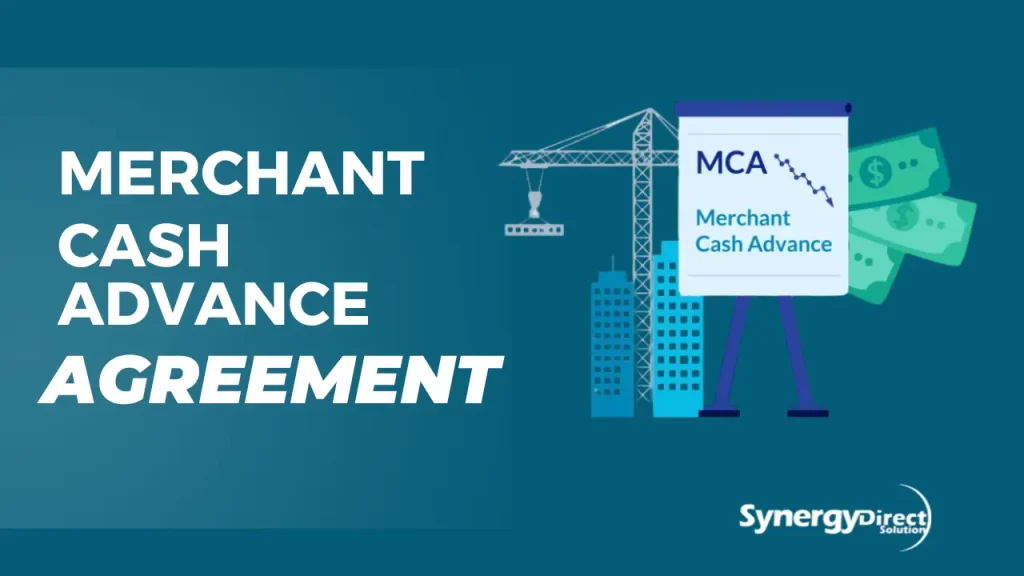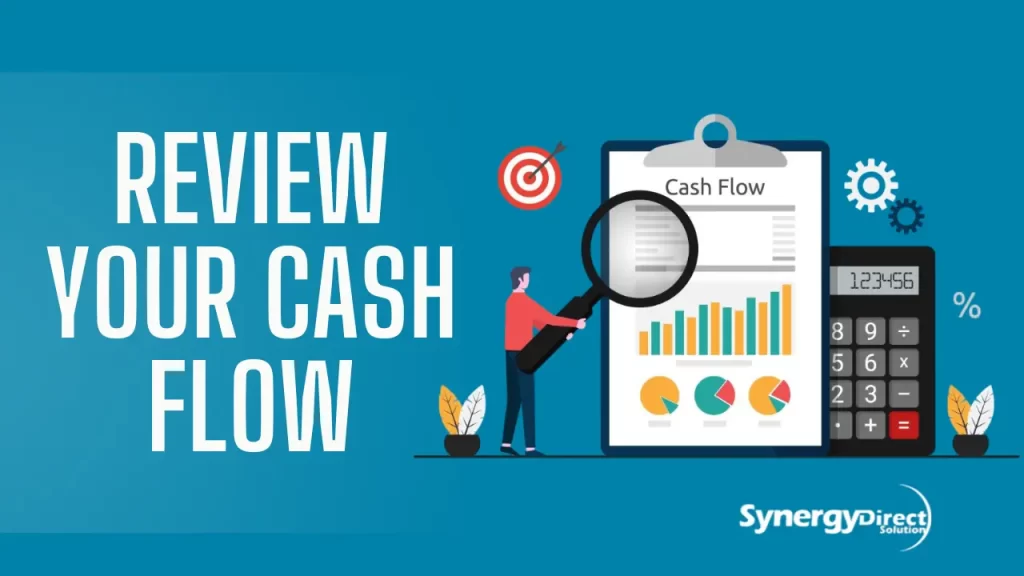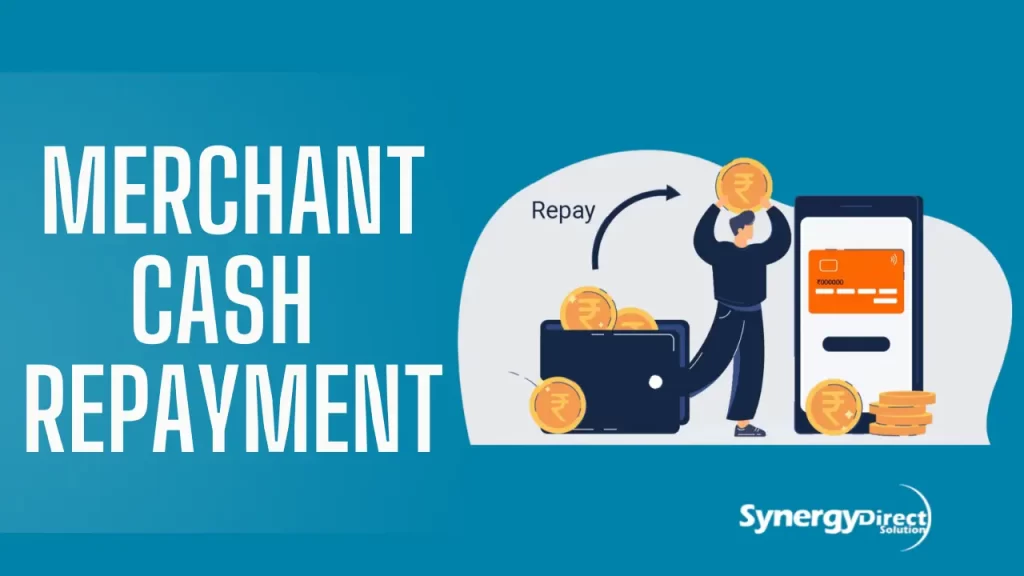Merchant Cash Advance Agreements: What Is an MCA Agreement and How Does It Work?
A Merchant Cash Advance agreement is a contract between a business and a lender where the lender provides an upfront sum of money to the business in exchange for a percentage of the business’s future revenue, typically from daily credit card sales or bank deposits. Unlike traditional loans, MCA agreements do not require collateral, and the repayment structure is based on the business’s revenue.
The primary appeal of an MCA agreement lies in its flexibility. Businesses repay the advance as a percentage of their daily sales, which means repayments fluctuate depending on how well the business is performing. This model offers businesses some relief during slow periods, as payments decrease when revenue is low and increase when sales are high. However, this flexibility also comes at a cost. MCAs often carry higher fees than traditional loans and are typically repaid faster, with most businesses paying off the advance within a year.
Understanding how an MCA works is crucial before committing to this form of financing. The agreement itself outlines the terms of the advance, including the amount provided, the repayment structure, and the associated fees. It’s important to be fully informed about these details to ensure that an MCA is the right choice for your business.

Key Elements in Your Merchant Cash Advance Agreements
When reviewing an MCA agreement, several key elements should be considered to fully understand the terms of the funding. Here are the most important aspects to focus on:
The Advance Amount
This is the total sum of money that the lender provides to the business. The amount is typically based on the business’s average monthly revenue or credit card sales. It’s important to assess whether the amount offered will be sufficient to meet your business’s needs and whether the repayment structure is manageable based on your sales projections.
Factor Rate
The factor rate is one of the most critical aspects of an MCA. It determines the total amount you will repay over the course of the agreement. The factor rate is usually expressed as a number greater than 1, such as 1.2, 1.3, or even higher. For example, if you receive an MCA of $10,000 with a factor rate of 1.3, you will repay $13,000 (the original amount plus the factor rate).
It’s important to note that the factor rate is not an interest rate but rather a multiplier that affects the total amount you owe. This rate is often higher than what you would find with traditional loans, making it a costly form of financing.
Repayment Percentage
In an MCA, the repayment amount is based on a fixed percentage of your daily sales or bank deposits. For example, if you agree to a repayment percentage of 15%, the lender will take 15% of your daily credit card or bank sales until the advance is fully repaid. This flexibility allows for smaller payments during slow sales periods and larger payments during busy times.
It’s important to understand how much of your daily revenue will be taken for repayment and whether this will impact your ability to cover other business expenses.
Holdback Amount
The holdback is the portion of your daily sales that is withheld for repayment purposes. This percentage is agreed upon at the beginning of the contract and is a direct reflection of the repayment terms. The holdback percentage typically ranges from 5% to 20% of your daily revenue. Understanding this percentage is crucial, as it determines how much of your daily sales will be used to pay off the MCA.
Fees
MCAs often come with additional fees beyond the factor rate, including origination fees, processing fees, and early repayment penalties. These fees can significantly increase the overall cost of the advance, so it’s vital to ask about any and all fees before agreeing to the terms. Some MCA providers may charge a flat fee, while others may charge fees based on the size of the advance or the length of the term.
Repayment Term
The repayment term refers to the duration of time it will take to pay back the MCA. While MCAs do not have a set repayment period like traditional loans, most agreements are designed to be repaid within 6 to 18 months. The repayment period is directly influenced by your business’s sales volume. If your business experiences a surge in sales, the advance may be paid off quicker, while slower sales will extend the repayment period.
Daily or Weekly Payments
Unlike traditional loans, which have monthly payments, an MCA typically requires daily or weekly payments. This can provide businesses with more flexibility but may also create cash flow pressure, particularly during slow periods. Ensure you are prepared for the frequency of these payments and how they might impact your day-to-day operations.
What to Do Before Signing Your MCA Agreement
Before committing to an MCA agreement, there are several important steps you should take to ensure that you fully understand the terms and that the financing option is right for your business.
Review Your Cash Flow
An MCA repayment structure is based on a percentage of your daily sales, so it’s crucial to have a solid understanding of your business’s cash flow. Analyze your revenue over the past few months to determine if you can handle the daily repayments without negatively impacting your business operations. If your sales fluctuate or if your business is still in its early stages, you may want to reconsider whether an MCA is a sustainable solution for your funding needs.
Understand the Costs
The total cost of an MCA can be significantly higher than that of a traditional loan, so it’s important to review the factor rate and fees carefully. Be sure to calculate the total amount you will repay and assess whether your business can afford this expense. High fees can quickly add up, making the MCA a costly form of financing.
Compare Multiple Lenders
Not all MCA providers are the same, and terms can vary widely between lenders. Take the time to shop around and compare the factor rates, repayment terms, and fees from different lenders. By comparing options, you can find a provider that offers the most favorable terms for your business.
Check for Hidden Fees
MCA providers may charge additional fees that can increase the overall cost of the advance. Be sure to ask for a full breakdown of all fees before signing the agreement. Common hidden fees include origination fees, processing fees, and penalties for early repayment. Understanding all the fees involved will help you make a more informed decision.
Seek Legal and Financial Advice
Given the complexity of MCA agreements and the potential financial burden they can place on your business, it’s a good idea to consult with a legal or financial advisor before signing. An advisor can help you understand the terms of the agreement and determine whether the MCA is the best financing option for your business.
Evaluate Your Long-Term Financial Goals
An MCA may provide quick access to capital, but it’s essential to evaluate how this decision fits into your long-term financial goals. If your business expects steady growth and stable cash flow, an MCA might make sense. However, if you’re uncertain about your business’s revenue projections, or if you anticipate financial challenges ahead, it may be better to explore other funding options.
Understand the Repayment Impact
Before committing to an MCA agreement, there are several important steps you should take to ensure that you fully understand the terms and that the financing option is right for your business.
Review Your Cash Flow
An MCA repayment structure is based on a percentage of your daily sales, so it’s crucial to have a solid understanding of your business’s cash flow. Analyze your revenue over the past few months to determine if you can handle the daily repayments without negatively impacting your business operations. If your sales fluctuate or if your business is still in its early stages, you may want to reconsider whether an MCA is a sustainable solution for your funding needs.

Understand the Costs
The total cost of an MCA can be significantly higher than that of a traditional loan, so it’s important to review the factor rate and fees carefully. Be sure to calculate the total amount you will repay and assess whether your business can afford this expense. High fees can quickly add up, making the MCA a costly form of financing.
Compare Multiple Lenders
Not all MCA providers are the same, and terms can vary widely between lenders. Take the time to shop around and compare the factor rates, repayment terms, and fees from different lenders. By comparing options, you can find a provider that offers the most favorable terms for your business.
Check for Hidden Fees
MCA providers may charge additional fees that can increase the overall cost of the advance. Be sure to ask for a full breakdown of all fees before signing the agreement. Common hidden fees include origination fees, processing fees, and penalties for early repayment. Understanding all the fees involved will help you make a more informed decision.
Seek Legal and Financial Advice
Given the complexity of MCA agreements and the potential financial burden they can place on your business, it’s a good idea to consult with a legal or financial advisor before signing. An advisor can help you understand the terms of the agreement and determine whether the MCA is the best financing option for your business.
Evaluate Your Long-Term Financial Goals
An MCA may provide quick access to capital, but it’s essential to evaluate how this decision fits into your long-term financial goals. If your business expects steady growth and stable cash flow, an MCA might make sense. However, if you’re uncertain about your business’s revenue projections, or if you anticipate financial challenges ahead, it may be better to explore other funding options.
Understand the Repayment Impact
Since MCA repayments are tied to your sales, it’s important to understand how they will impact your day-to-day operations. The amount deducted from your daily sales can add up quickly and might affect your ability to cover other operating expenses. Make sure you can comfortably afford the repayments while maintaining your business’s growth.

Conclusion
Merchant Cash Advance can be a useful funding option for businesses needing quick capital. However, before signing an Merchant Cash Advance Agreements, it’s essential to understand the key elements involved, such as the factor rate, repayment structure, and any fees associated with the advance. Careful consideration of your business’s financial health and long-term goals will help you determine whether an MCA is the right choice for you.
Taking the time to review the agreement, compare different lenders, and seek professional advice will ensure that you make an informed decision. While MCAs provide fast access to capital, the high costs and repayment structure should not be taken lightly. Properly evaluating your options and the agreement’s terms will help protect your business from unexpected financial strain.
